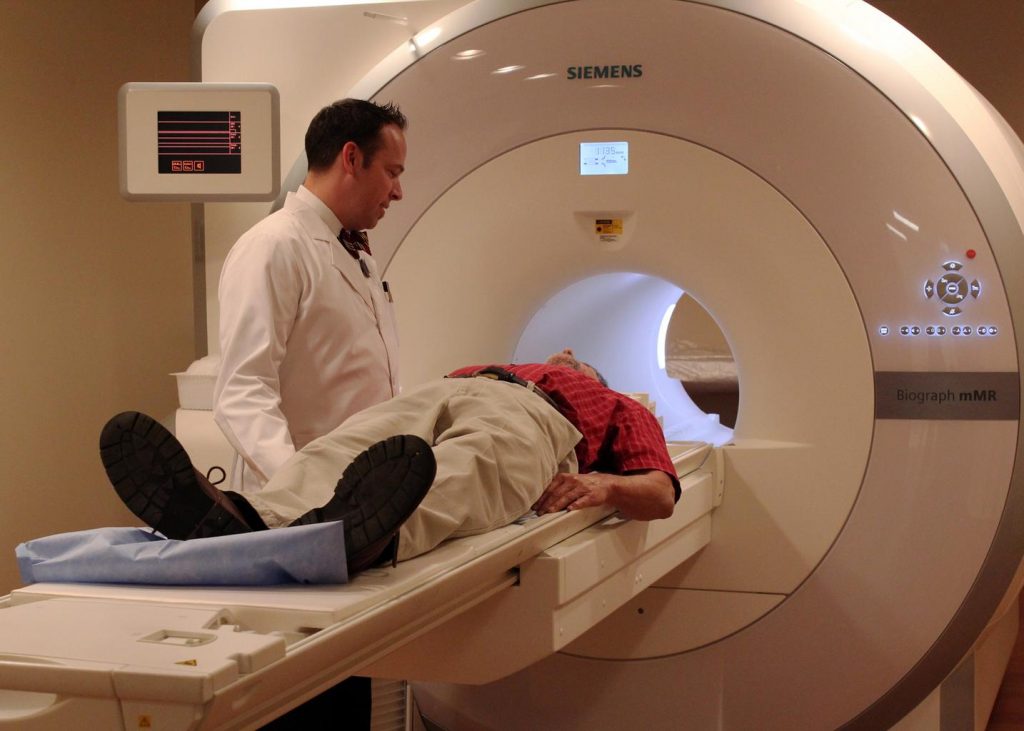A neurologist is a doctor specializing in neurology that treats various kinds of disorders that affect the nervous system, such as spinal cord and brain.
In the article below, we will provide the details about the job of a neurologist, including duties, skills, qualifications, etc.
Article Table of Contents
What Does a Neurologist Do
Neurologists treat and manage neurological conditions.
They usually work with patients that experience multiple sclerosis, seizure disorders, migraines, and other conditions.
While meeting with a patient for the first time, neurologists perform a physical and neurological exam.
They are designed to test muscle strength, reflexes, and coordination.
They may also run other tests to diagnose conditions, such as the Tensilon test, Lumbar puncture, or Electroencephalogram (EEG).
Neurologists don’t perform surgeries.
If surgery is needed, a patient will be referred to a neurosurgeon.
Responsibilities
- Examine patients experiencing neurological disorders.
- Cooperate with primary care physicians for consultations if a patient shows neurological-related issues.
- Diagnose neurological conditions and order tests such as imaging or blood tests to help identify neurological disorders.
- Perform and assess the results of a Lumbar puncture, EGG, and Tensilon test.
- Create a treatment plan for patients specific to their conditions.
- Guide the nurses and other medical technicians in the patients’ treatment.
- Assess the progress of patients.
- Perform research by developing and putting in practice clinical trials for future knowledge in the neurological field.
- Train medical students and other members of staff.
- Continue education to stay up to date in the area to provide the best care possible to patients.
Essential Skills
Professionalism:
Neurologists should stay professional at all times.
It means they should be friendly and communicative, stay focused when dealing with sensitive information or situations, and be organized.
Communication:
Neurologists need excellent communication skills to discuss conditions and treatment plans with patients ensuring they fully understand them.
Neurologists should be able to communicate and collaborate with other medical staff to help with diagnosis, administer treatment, and evaluate patients’ results.
Knowledgeable:
Neurologists should be knowledgeable in their area of expertise.
They need analytical skills, should be detail-oriented and have extensive knowledge of medicine.
Self-motivation and compassion:
It’s vital for neurologists to have a genuine desire to help people and stay self-motivated.
They should approach patients and their families with understanding and compassion.
Learning continuation:
Neurologists must stay updated on the latest advancements in medicine and neurology.
They should be able to work and study to find out new information that may have an impact on a diagnosis or treatment.
Many neurologists do some research independently.
How to Become a Neurologist
Education and training needed to become a neurologist can be rather demanding.
The BLS reports that almost all physicians, including neurologists, should have at least four years of undergraduate study and medical school.
Additionally, they need to complete the internship that can last from 3 to 7 years.
Getting into a medical school can be quite competitive.
Those who wish to become a neurologist need a high score on the Medical College Admission Test (MCAT), and volunteer at local hospitals or clinics to get some work experience.
This will bring you a benefit over the competition.
Training and Qualifications
To apply to medical school, students should submit letters of recommendation as well as their MCAT score.
They need to hold a bachelor’s degree with courses in chemistry, biology, physics, math, and English.
They also need at least four years of med school, two of which should include working hands-on with patients supervised by experienced doctors.
Medical students go through rotations in a hospital or clinic to gain experience in various fields such as pediatrics, family practice, surgery, and psychiatry.
The graduates of a medical school will then participate in a residency program.
Residency can last for three to seven years based on the study area.
Additionally, physicians need to be licensed and must pass a standardized national licensure examination in all states.
Experience
This job is highly demanding and requires in-depth knowledge of medicine.
Aspiring neurologists should go through extensive training and medical school.
It is impossible to get a job in the field without background.
However, you can gain experience through hands-on training while studying at a medical school, via a residency program, as well as volunteering.
Working Hours
Physicians can’t work a standard-hour week, and neurologists are not an exception.
The job can be stressful, and the workweek may take over 60 hours.
Doctors working in medical facilities may have to work on weekends.
However, those employed in schools or research facilities can have a standard work schedule.
Career Outlook
The job outlook for neurologists is positive.
According to the BLS, the employment rate should go up by 14% by 2024.
This is much faster than other occupations.
However, with advancing technology, physicians can treat more patients faster.
Because of this, the employment may decrease since fewer people will be needed for the same jobs.
The best prospects exist for those who are willing to work in low-income and rural areas, as the demand there is the highest.
According to PayScale, the average annual salary for this profession is $380,378.
Conclusion
The neurologist career is complex and requires a lot of education.
Neurologists need to have compassion and a genuine desire to help people.
Those who wish to enter the field should dedicate many years to education and internship before they can become doctors.
Neurologists work long hours, but their hard work is compensated for with a good salary.

